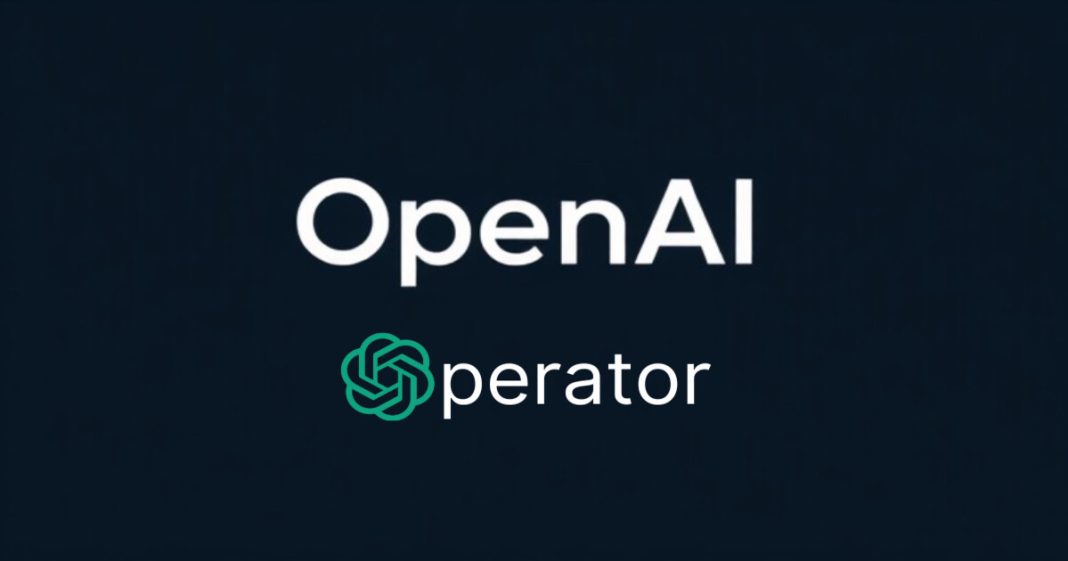OpenAI has officially launched “Operator,” a groundbreaking AI agent designed to independently perform a wide array of online tasks. After months of anticipation, the tool is now available as a limited research preview for ChatGPT Pro subscribers in the United States. Powered by OpenAI’s advanced technology, Operator aims to revolutionize task automation, setting the stage for a new era in artificial intelligence.
What is Operator?
Operator is an AI agent that interacts with the web much like a human, using a dedicated browser to perform tasks such as making dinner reservations, ordering groceries, filling out forms, or booking travel accommodations. It leverages the newly developed Computer-Using Agent (CUA) model, which combines GPT-4’s vision capabilities with advanced reasoning. This allows Operator to navigate websites, interact with buttons and menus, and complete tasks independently.
Read More: OpenAI shifts focus from AGI to superintelligence
Currently, Operator is accessible only to U.S.-based ChatGPT Pro users, with plans to expand to other countries and subscription tiers in the future. OpenAI emphasizes that Operator is in its early stages, branding it as a “research preview” to gather user feedback and refine its performance.
How Does Operator Work?
Operator operates through a pop-up browser within the ChatGPT interface. This dedicated browser allows the AI to navigate websites, fill out forms, and execute tasks while providing real-time updates to users. For sensitive actions, such as entering login credentials or payment information, Operator requests user confirmation before proceeding, ensuring security and user oversight.
The CUA model powering Operator is trained to interact with the visible elements of websites, eliminating the need for developer-facing APIs. This approach enables Operator to mimic human interaction with websites while maintaining the flexibility to handle various tasks. However, the tool requires user intervention for certain tasks, such as solving CAPTCHA challenges or entering sensitive data like credit card numbers.
Operator’s Capabilities and Use Cases
OpenAI has designed Operator to handle a wide variety of repetitive browser tasks. It can make restaurant reservations, book flights, and schedule appointments, making it a useful tool for users looking to automate planning and logistics. In addition to assisting with travel, Operator simplifies online shopping by ordering groceries, personalizing items on e-commerce platforms, and completing transactions. Another key function is form filling, where the AI automates data entry for lengthy forms or applications. Furthermore, it assists in task management by creating to-do lists and helping with vacation planning.
Operator supports multitasking, allowing users to initiate multiple tasks simultaneously in separate conversations. For example, it can book a campsite while ordering a custom gift on another website. This ability enhances efficiency by reducing the need for manual web navigation.
Addressing Limitations and Safety Concerns
OpenAI acknowledges that Operator is still a work in progress. The tool struggles with complex or specialized interfaces and tasks requiring high customization, such as creating detailed presentations or managing intricate calendar systems. Additionally, there are rate limits on daily usage and task execution.
Security remains a top priority for OpenAI. Operator is designed to recognize and mitigate malicious prompts, phishing attempts, and other security threats. A monitoring system halts suspicious activity, and automated safeguards are continuously updated to prevent misuse. For particularly sensitive tasks, such as banking transactions, Operator requires active user supervision to avoid errors.
Rise of AI Agents
Operator is OpenAI’s first major step into the realm of AI agents, which are digital assistants capable of making decisions and taking actions on behalf of users. This launch comes amidst growing competition from companies like Google, Anthropic, and Perplexity, all of which have introduced their own agent-based systems in recent months.
Google’s Gemini 2.0 and Anthropic’s Claude model have already demonstrated agent capabilities, such as interacting with web pages and completing tasks like hailing rides or setting reminders. Apple has also incorporated AI advancements into Siri, showcasing the industry-wide push toward more autonomous AI tools.
The Path Forward
Despite its limitations, Operator has significant potential to reshape daily life by automating mundane online tasks. OpenAI envisions a future where AI agents like Operator will become indispensable tools for saving time and simplifying complex workflows. The company plans to expand access to Operator beyond Pro users and integrate it more deeply into its ChatGPT ecosystem.
Read More: Former OpenAI Exec Ilya Sutskever starts safe AI company
OpenAI CEO Sam Altman has described Operator as the beginning of a larger push into AI agents, with promises of broader capabilities and applications in the future. While Europe may have to wait longer for access due to regulatory complexities, OpenAI is committed to refining Operator and rolling it out globally.














